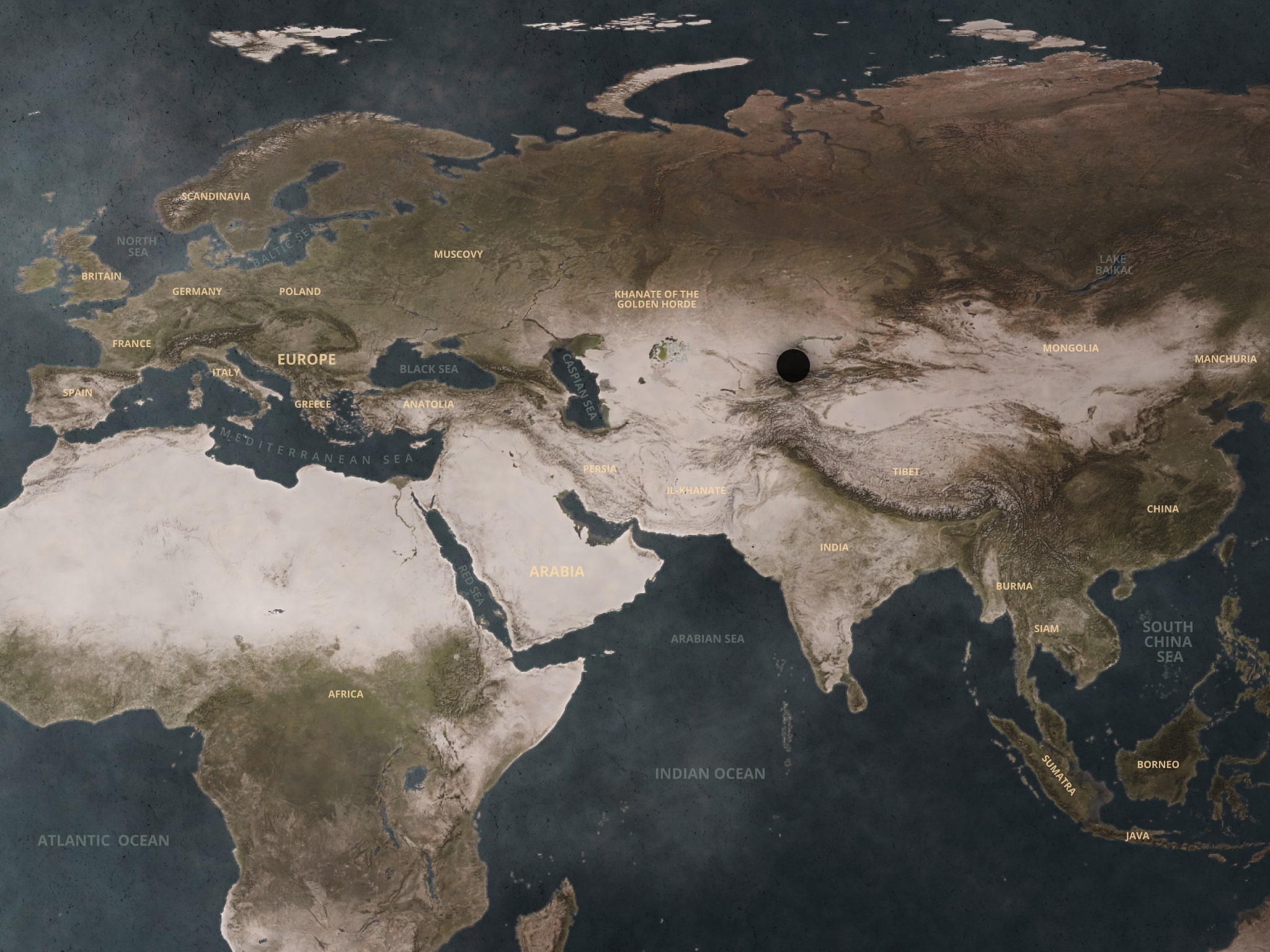
The strain of Y.pestis, the bubonic plague, emerges in Mongolia, possibly passed on to humans through a tarabagan, a type of marmot.
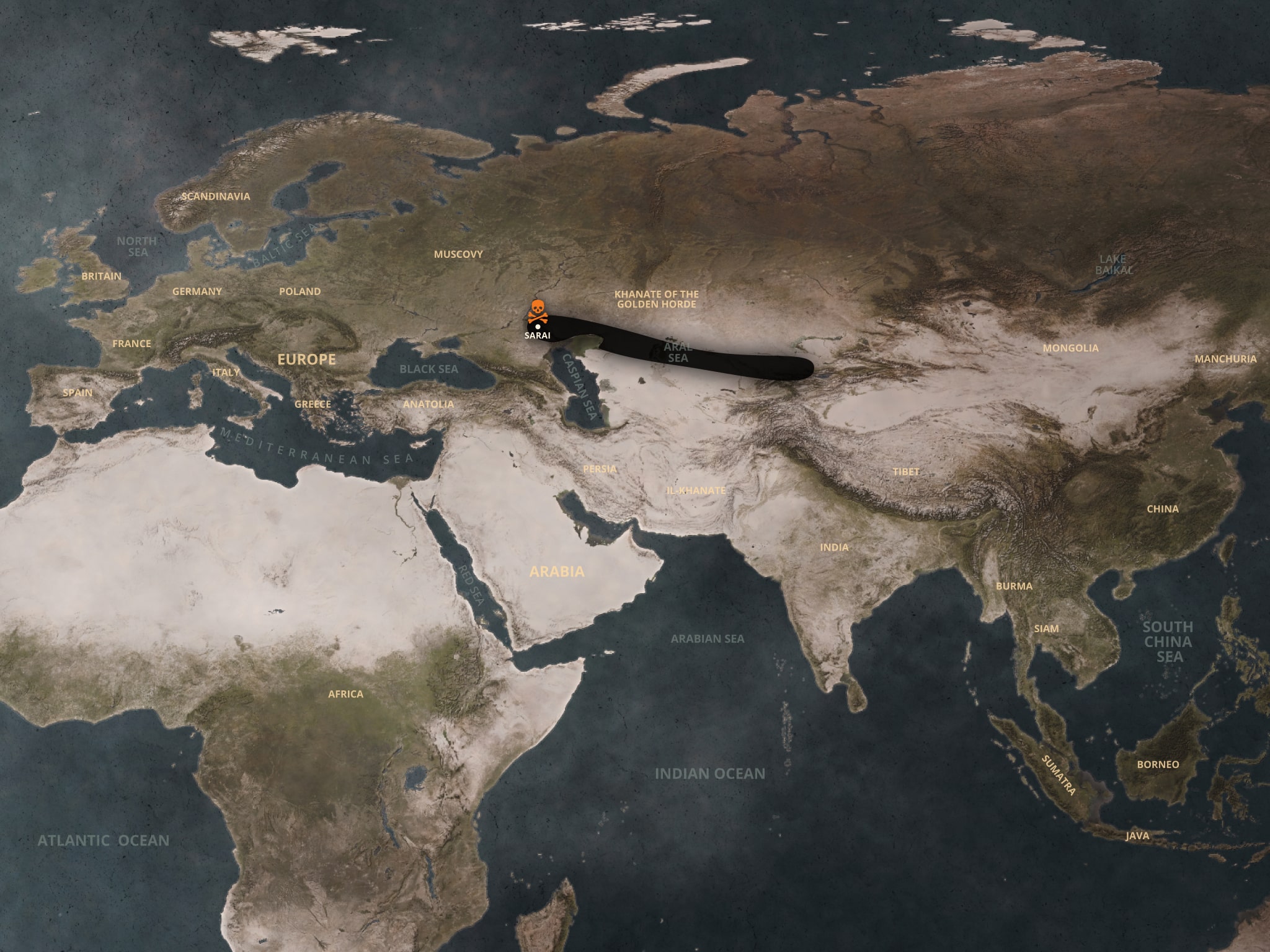
The diseases ravages the Mongol capital of Sarai, and is carried westwards by the armies of the Mongol empire.

The Mongol armies, led by Jani Beg, attack Kaffa, a Genoese trading port (now modern Feodosiya) in the Crimea. As his soldiers perish from the disease, Janiberg begins to catapult their corpses over the walls of the town and infects the Genoese.
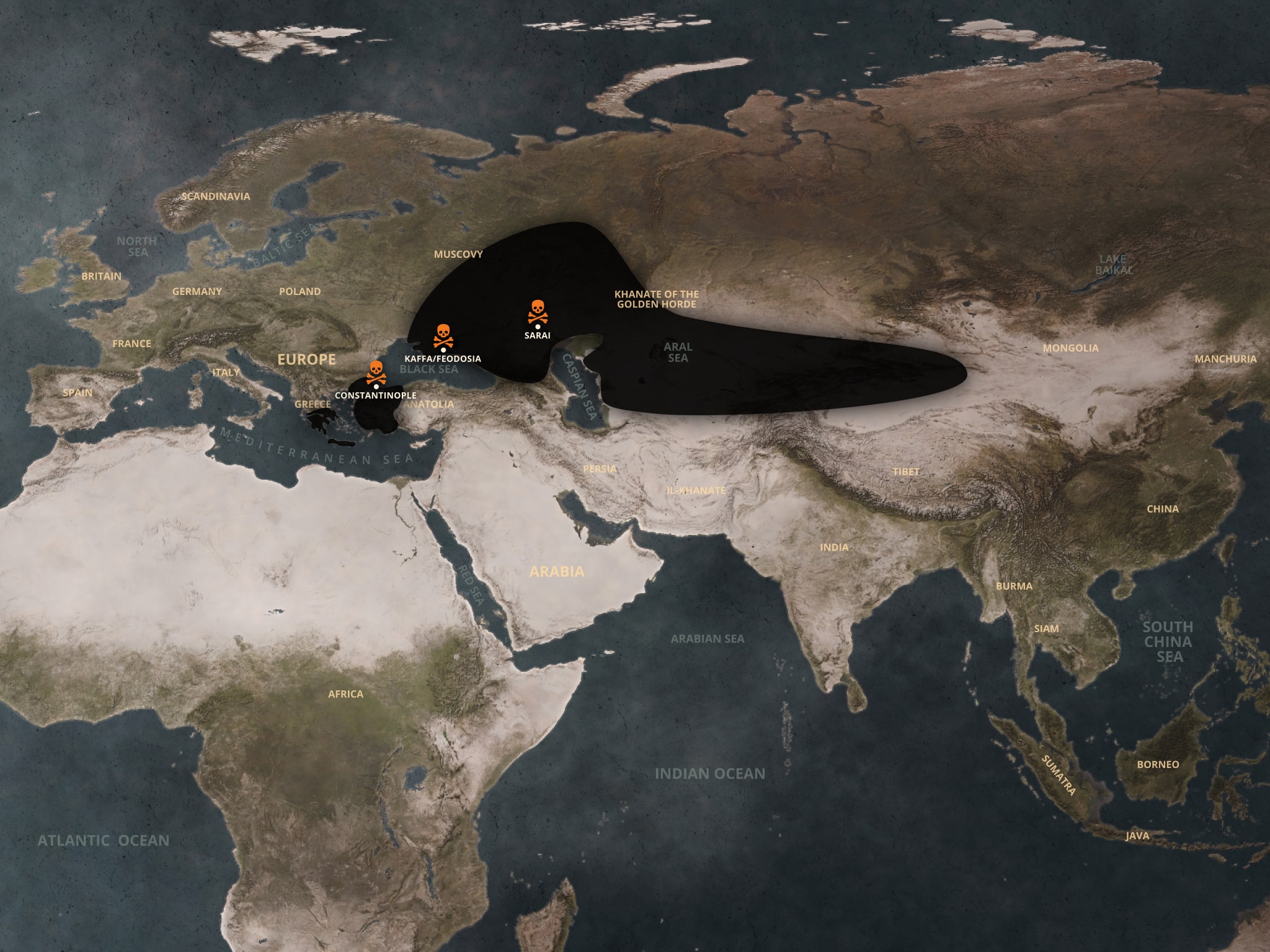
As the Genoese survivors escape from Kaffa, animals pick clean the corpses of the dead and dying. The ships carrying the survivors dock around Europe and spread the disease rapidly. One arrives in Constantinople (modern Istanbul). Estimates suggest that almost 90% of the city’s population perish as a result of the infection.
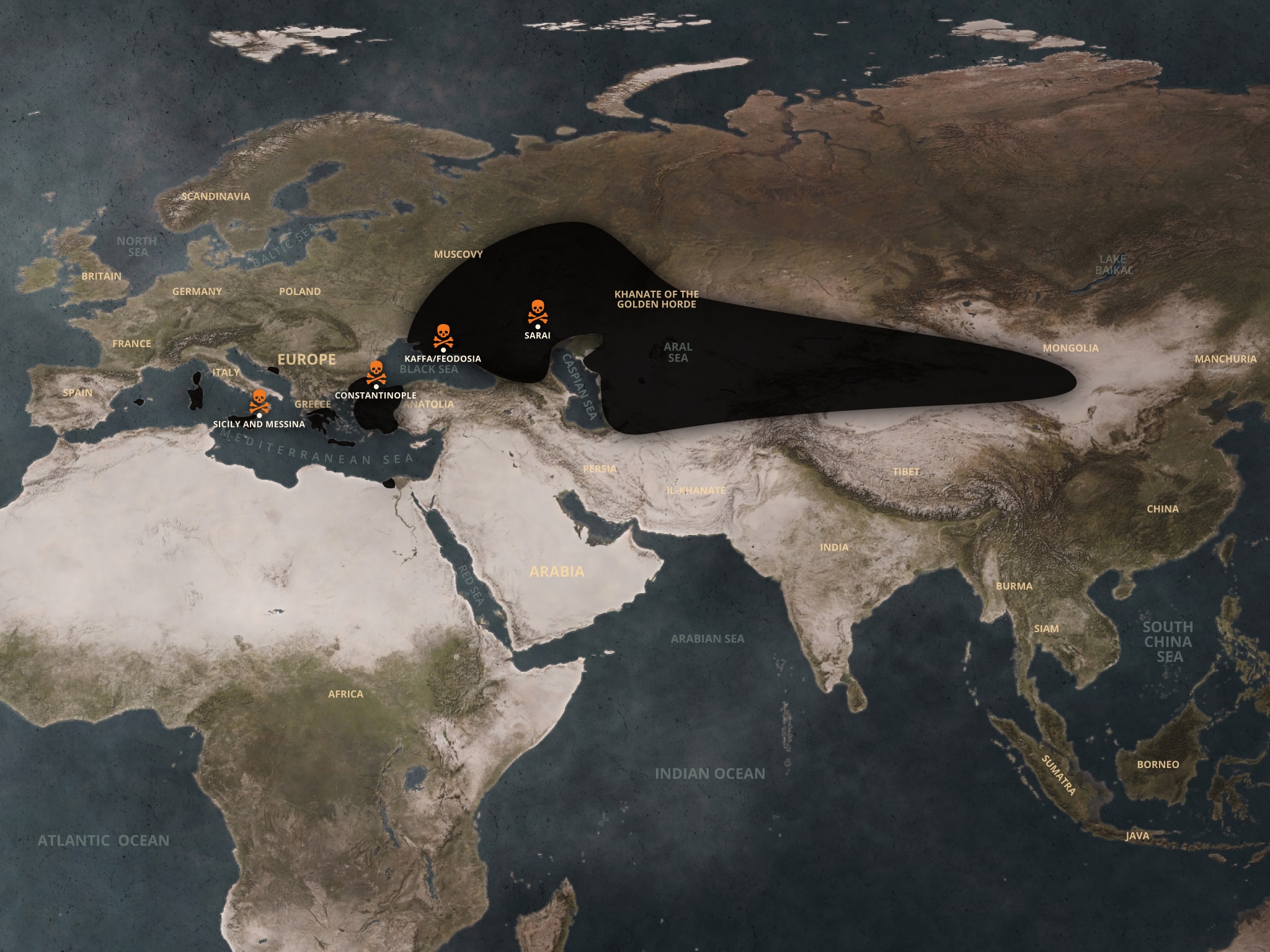
Another ship carrying survivors from Kaffa docks in Sicily. The crew have been decimated by the disease, and the residents of the island fare little better. From there, it spreads to Messina, and into the Italian peninsula where it will travel north to the great Republics of the north, including Venice.
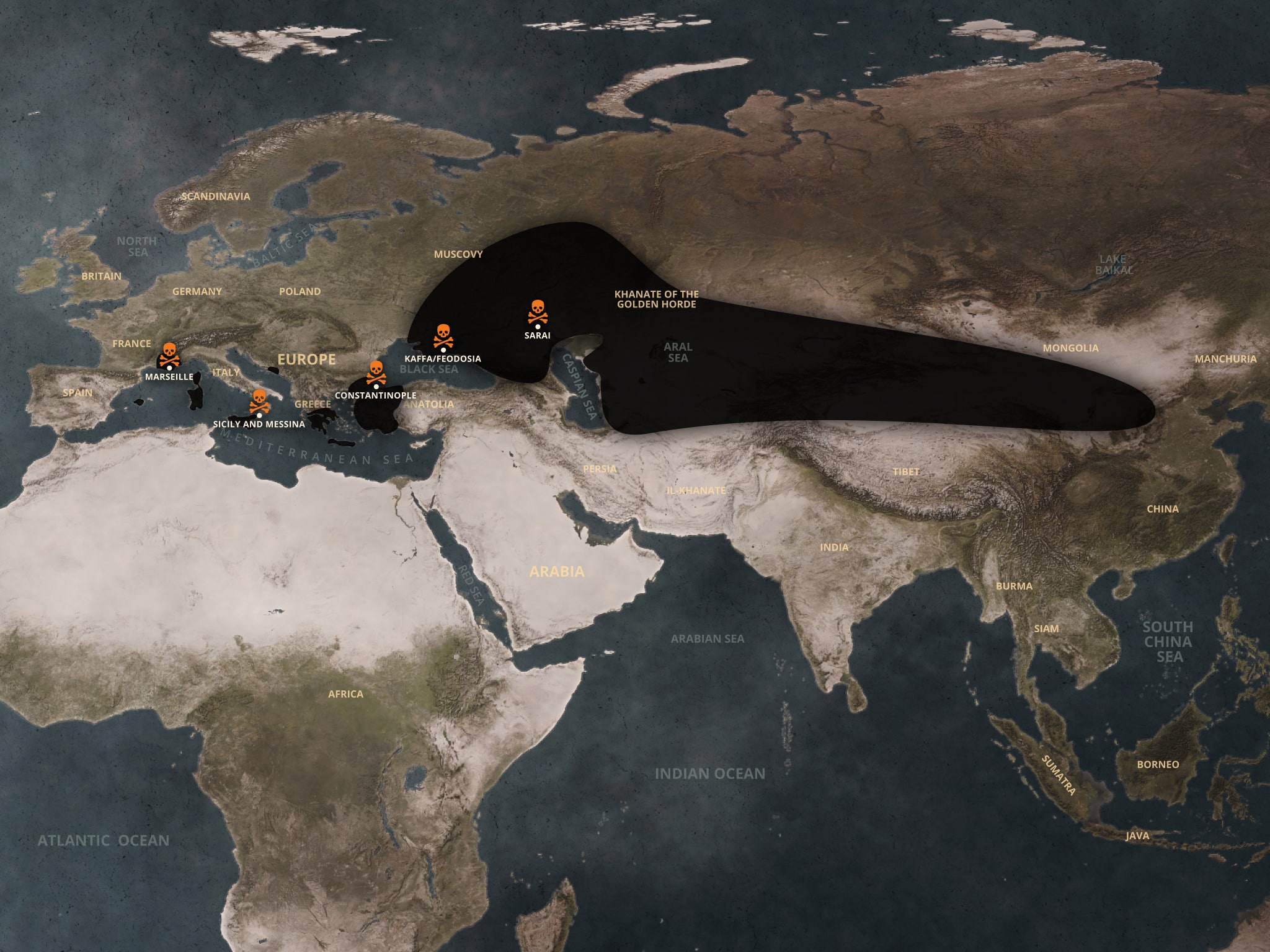
The plague arrives in France, brought to the country from ships docking at the port city of Marseille.
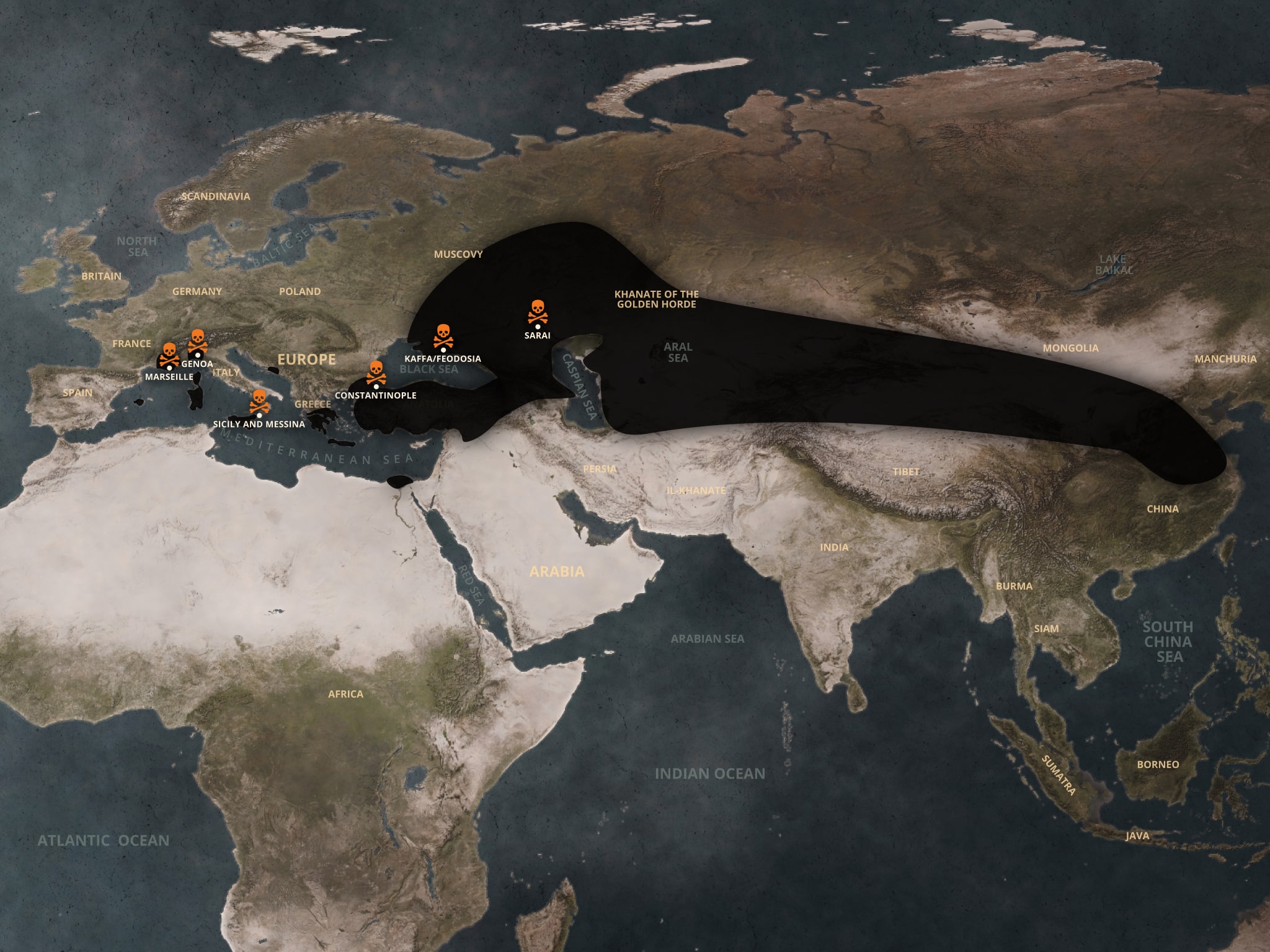
A ship attempts to enter Genoa itself, but is driven back. This sensible approach is ultimately futile – the defending Genoans are infected.
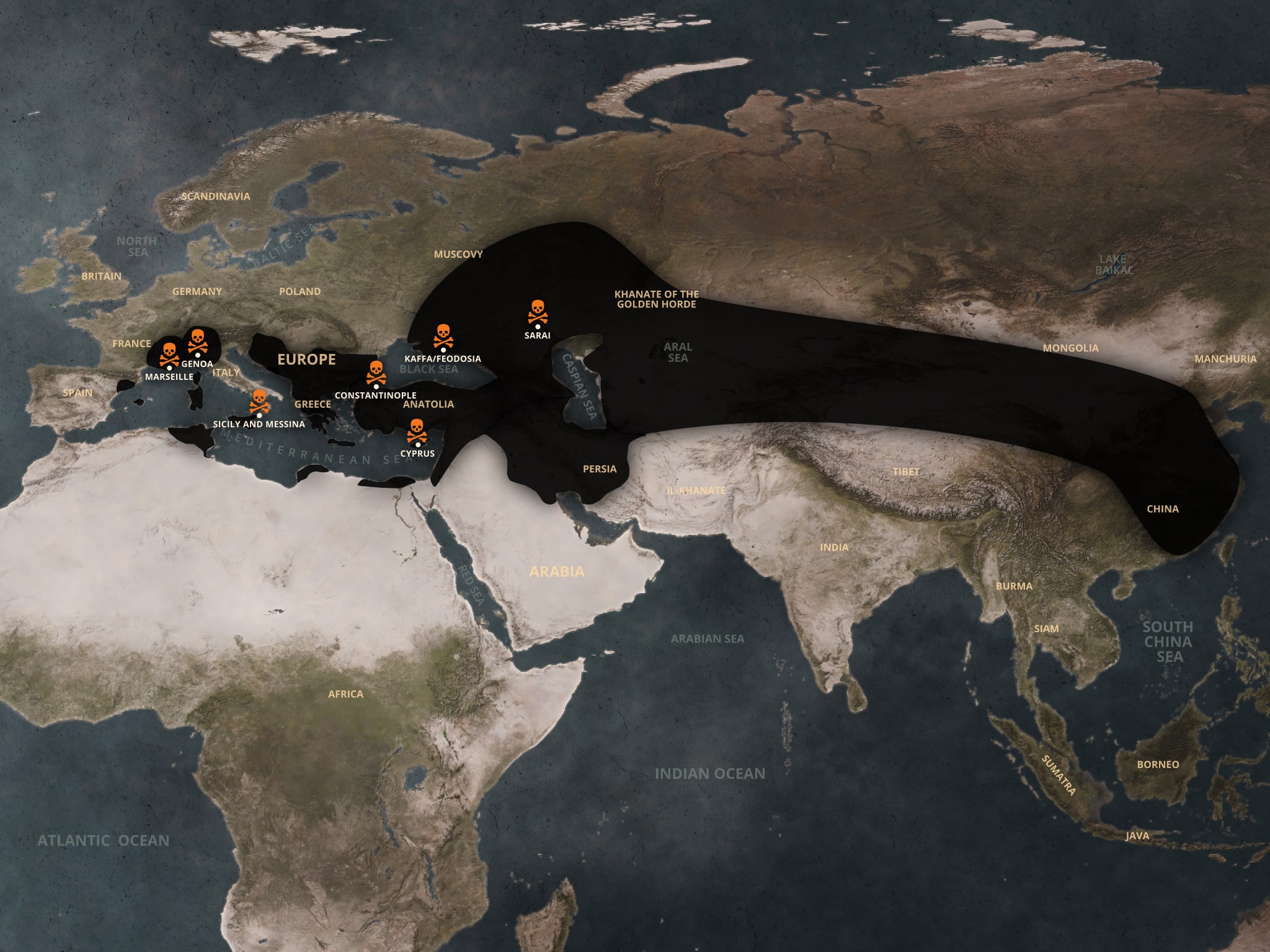
The disease is by now also spreading eastwards. Greece follows soon after in the wake of Sicily’s contamination, and from there Bulgaria, Romania, Egypt and Cyprus. Further still, the plague arrives in the Persian Empire.
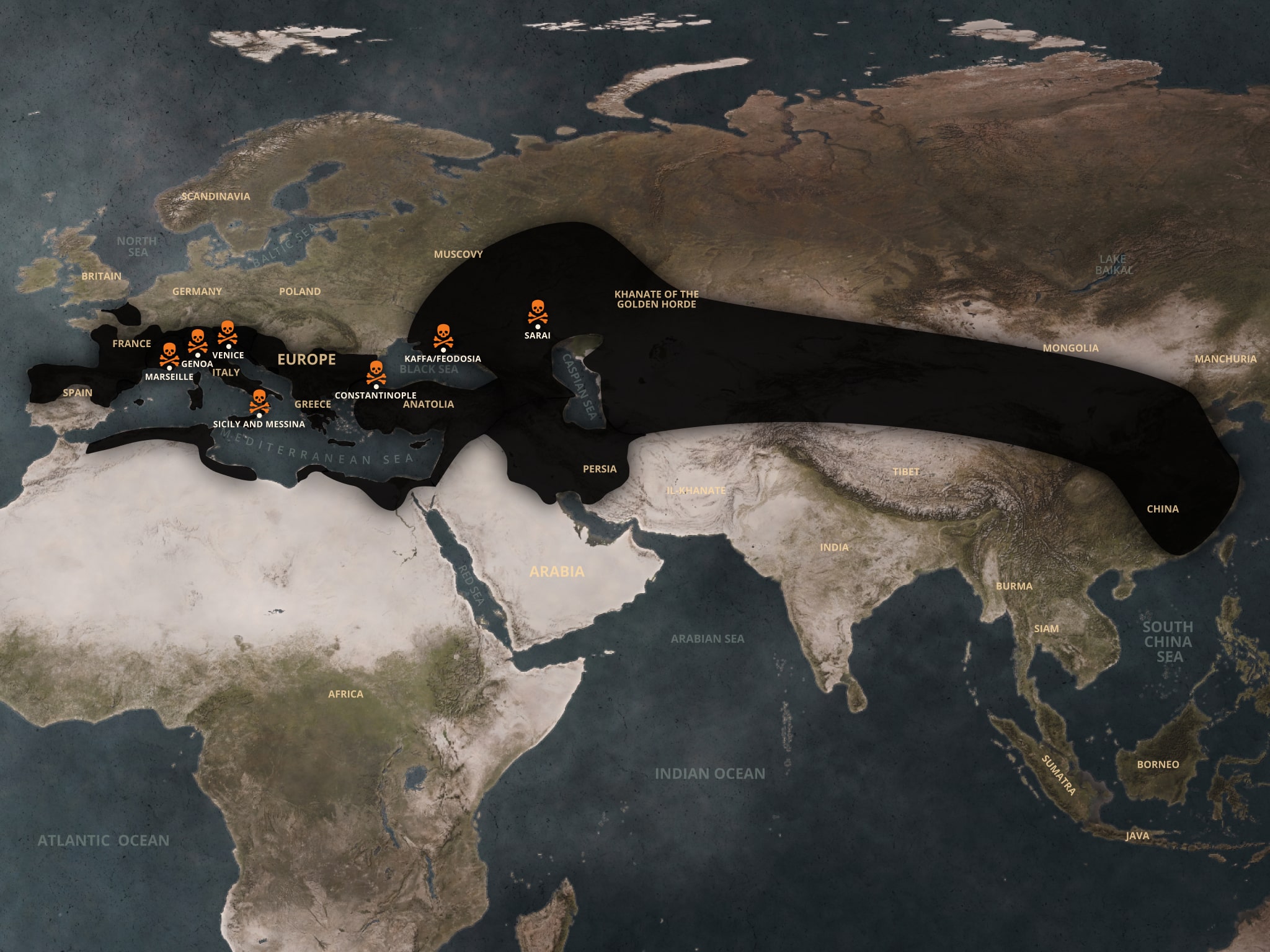
The plague arrives in Venice, where it will eventually kill 60% of the population.\nFear of the plague, and the search for explanations and culpability, whips up hostility, suspicion and violence. The Jews become a target for anger in Catholic Europe and displays of anti-semitic violence start to occur throughout the continent.
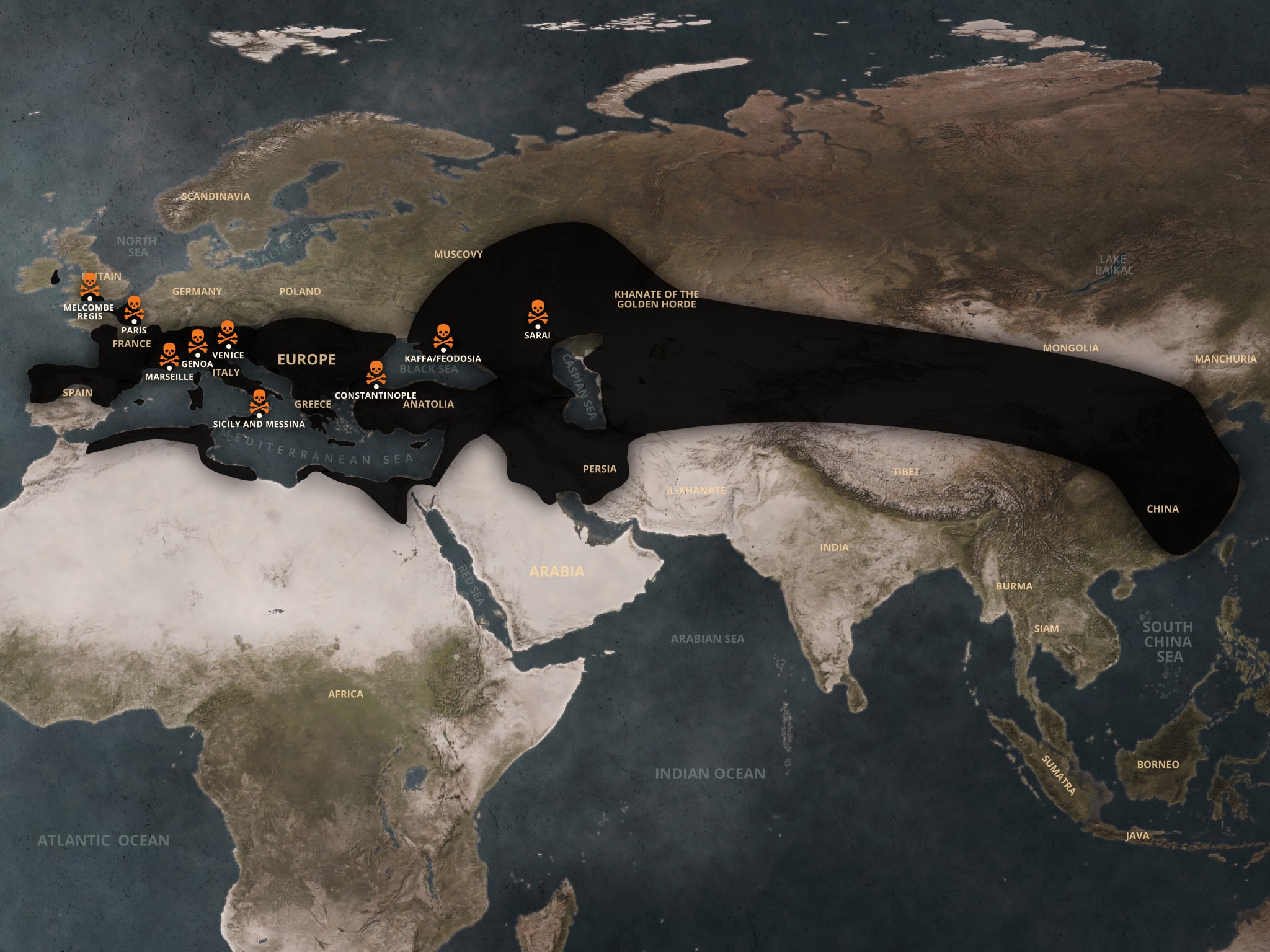
The plague arrives in England from a ship docking in the town of Melcombe Regis on the south coast. Soldiers returning from fighting against the French in the Hundred Years War may have carried the pestilence back home with them.
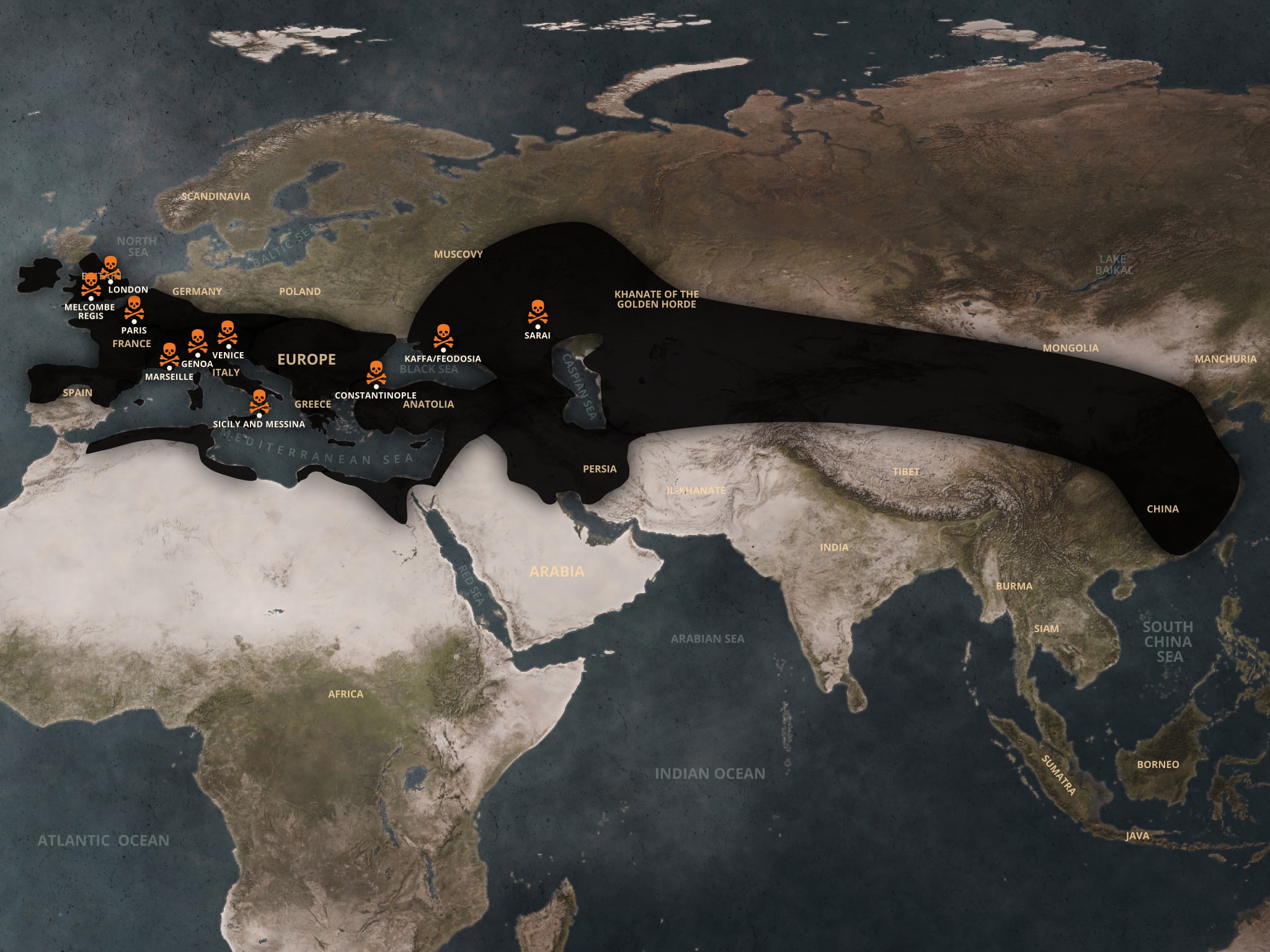
The Black Death spreads into Germany, with cities along major trade routes and rivers, such as Cologne and Hamburg, experiencing outbreaks.\nThe plague reaches London, and claims many lives, including Princess Joan, the daughter of King Edward III. London is abandoned as people flee for the countryside.
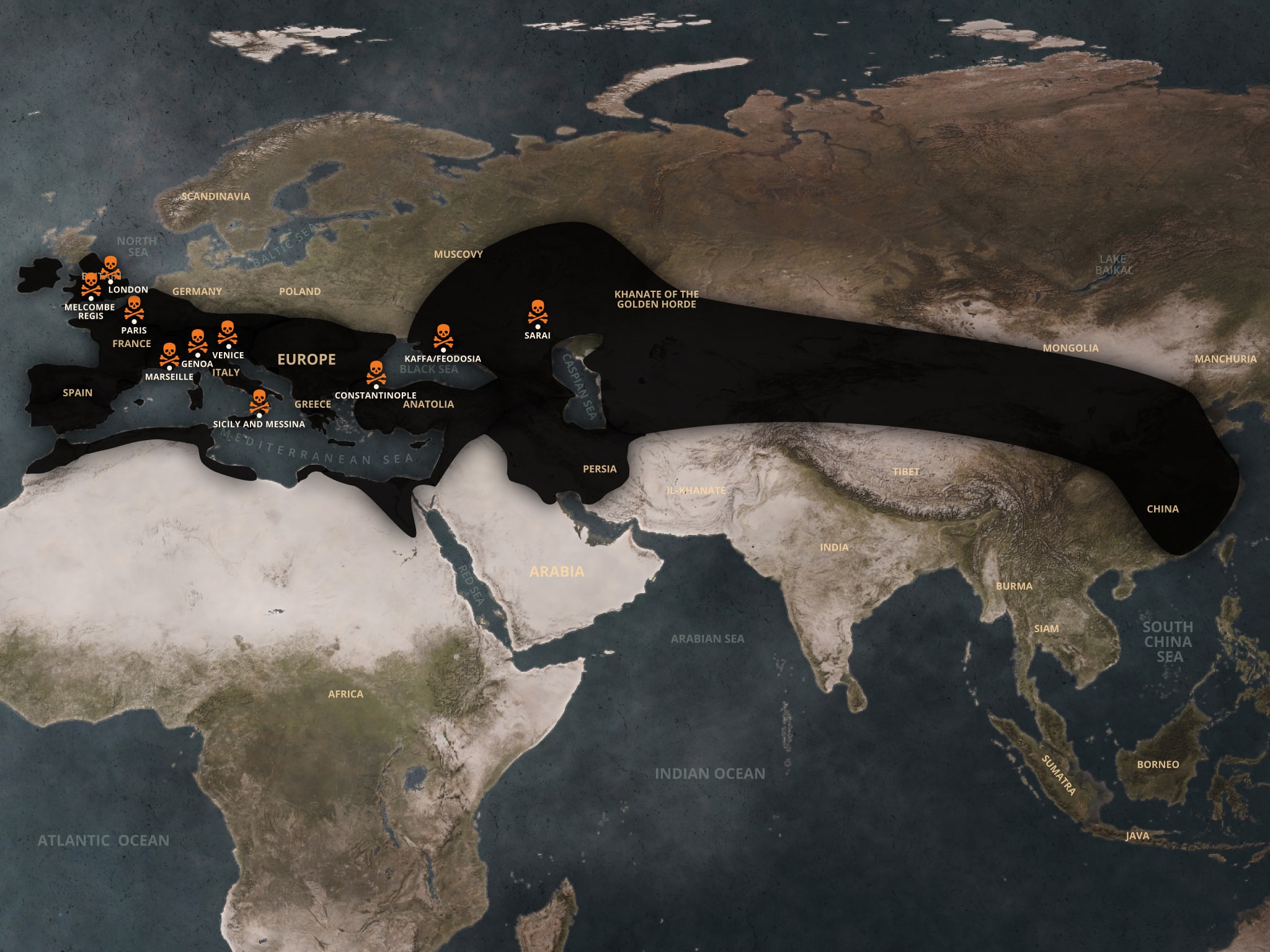
Further anti-Semitic violence erupts in central Europe, following the spread of malicious rumours. One such rumour claimed that the disease was spread by Jews poisoning village wells. The response in German and French villages along the Rhine is to massacre Jewish inhabitants.\nNot all communities are taken in by such rumours, however. King Casimir III of Poland provides a safe haven to Jews, and many migrate eastwards to Polish and Lithuanian lands.
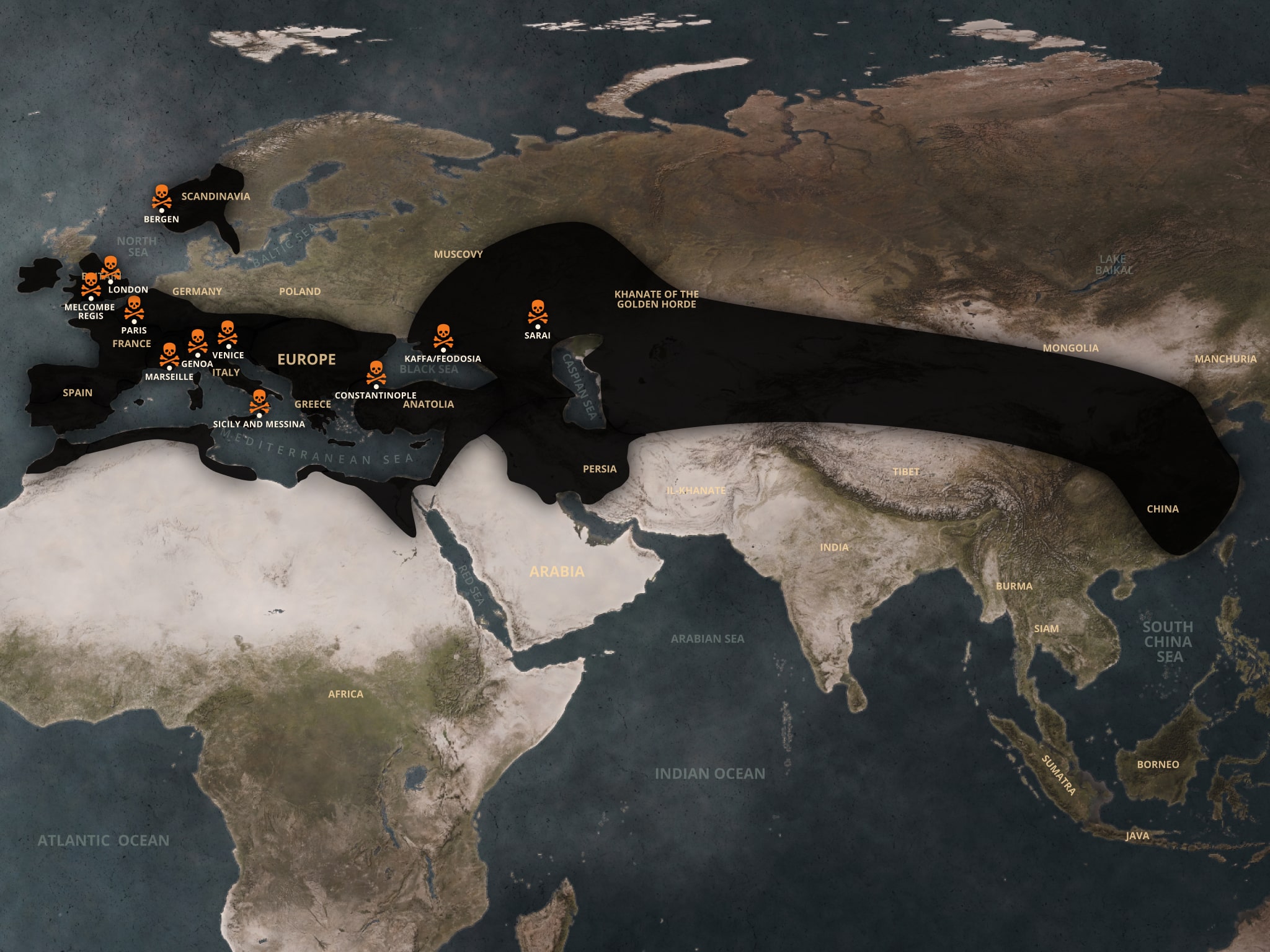
The plague reached Norway in February with the arrival of an English ship at Bergen. From there, it spread to the rest of Scandinavia.
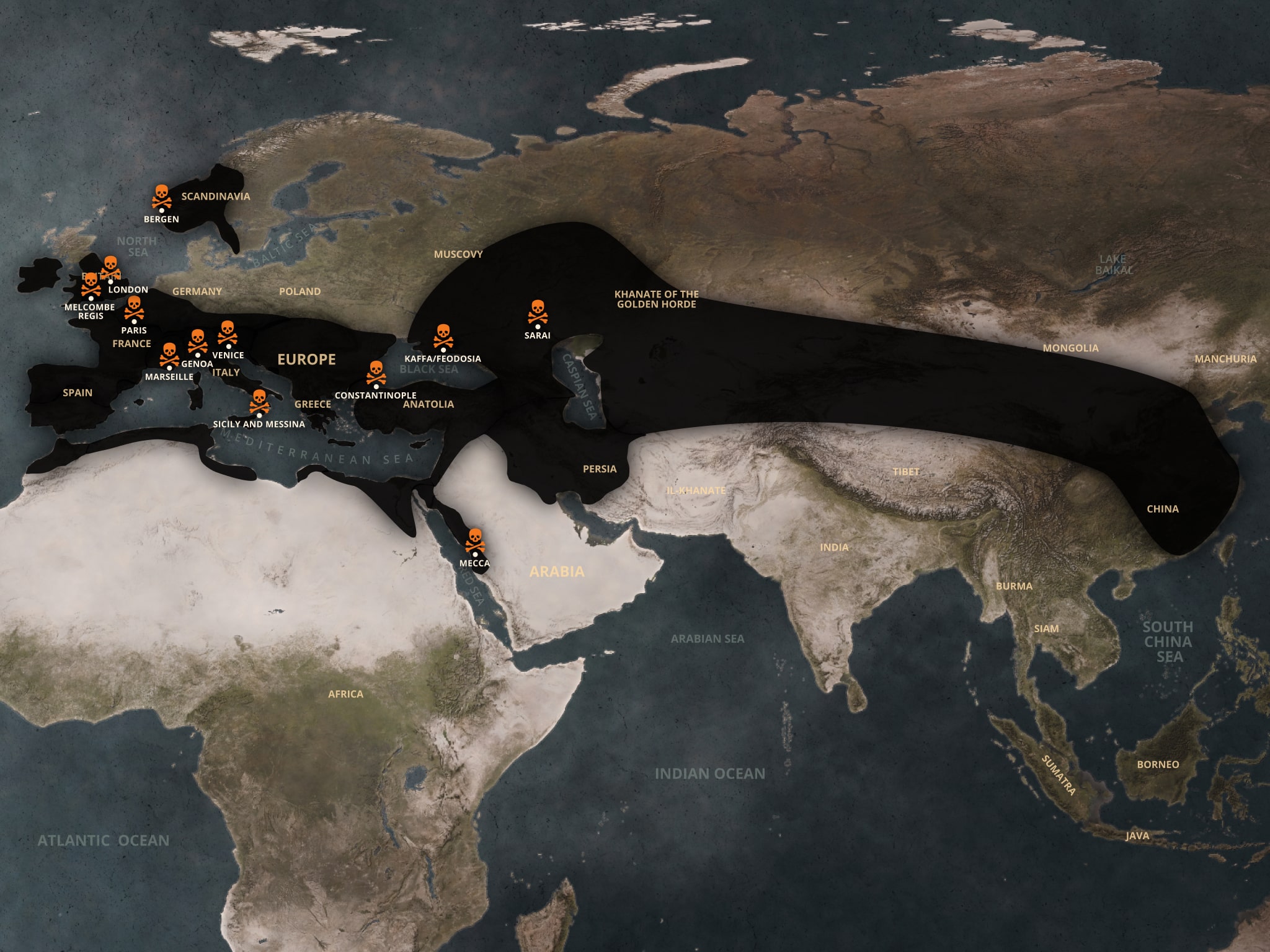
The Black Death arrived in Mecca, profoundly impacting the city due to its role as a religious and trade center. The influx of pilgrims and merchants facilitated the plague's spread, leading to high mortality and disrupting the annual Hajj pilgrimage. This episode highlights the pandemic's extensive reach and its devastating effects across civilizations.
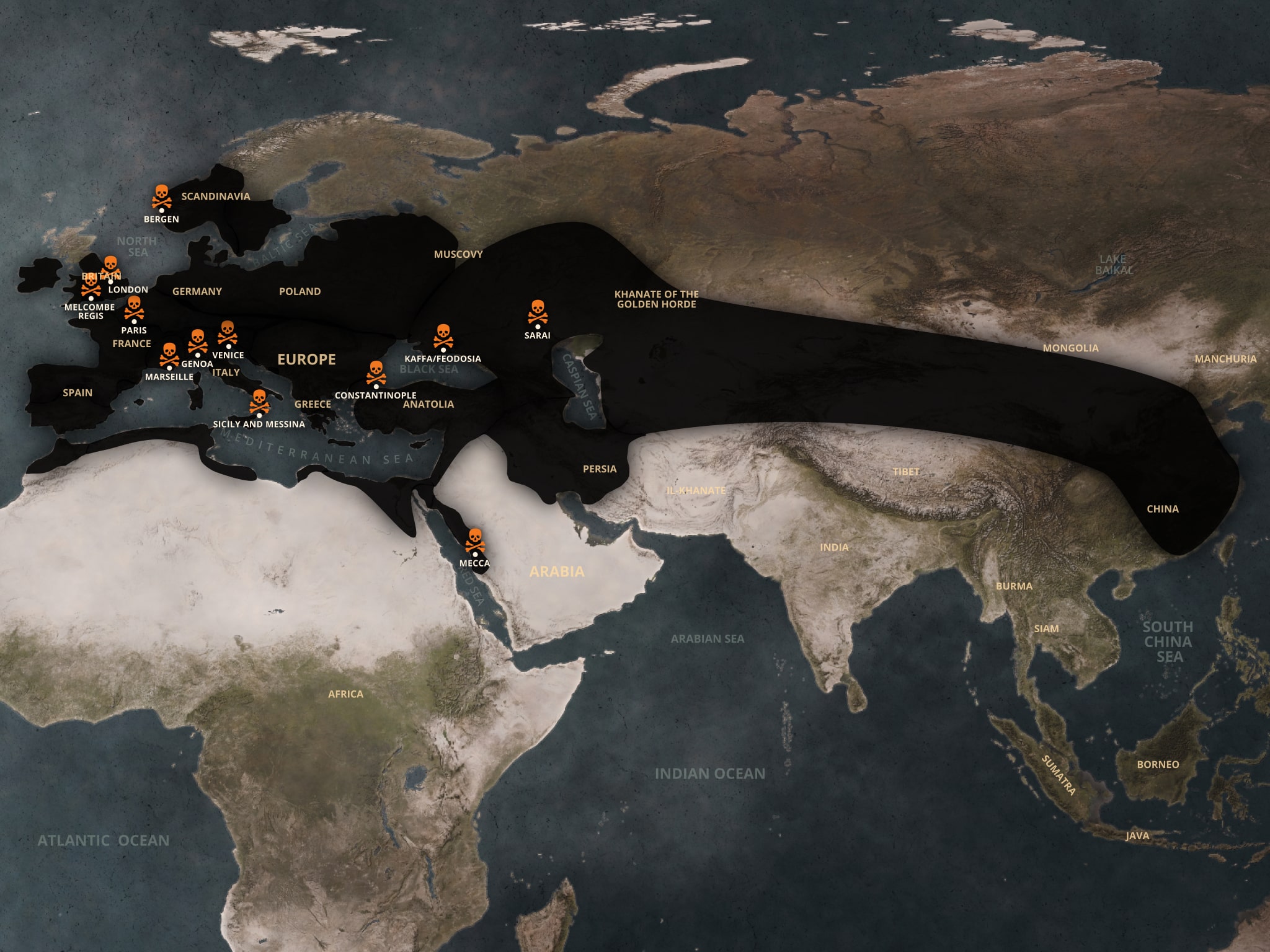
During these years, the Black Death penetrated Northern Eastern Europe, affecting areas such as Poland, Lithuania, and parts of Russia. The spread in these regions was characterized by varying onset times and intensities, partly due to the area's lower population density and the sporadic nature of trade and communication routes. The impact was nonetheless significant, leading to widespread mortality, social disruption, and economic hardship.
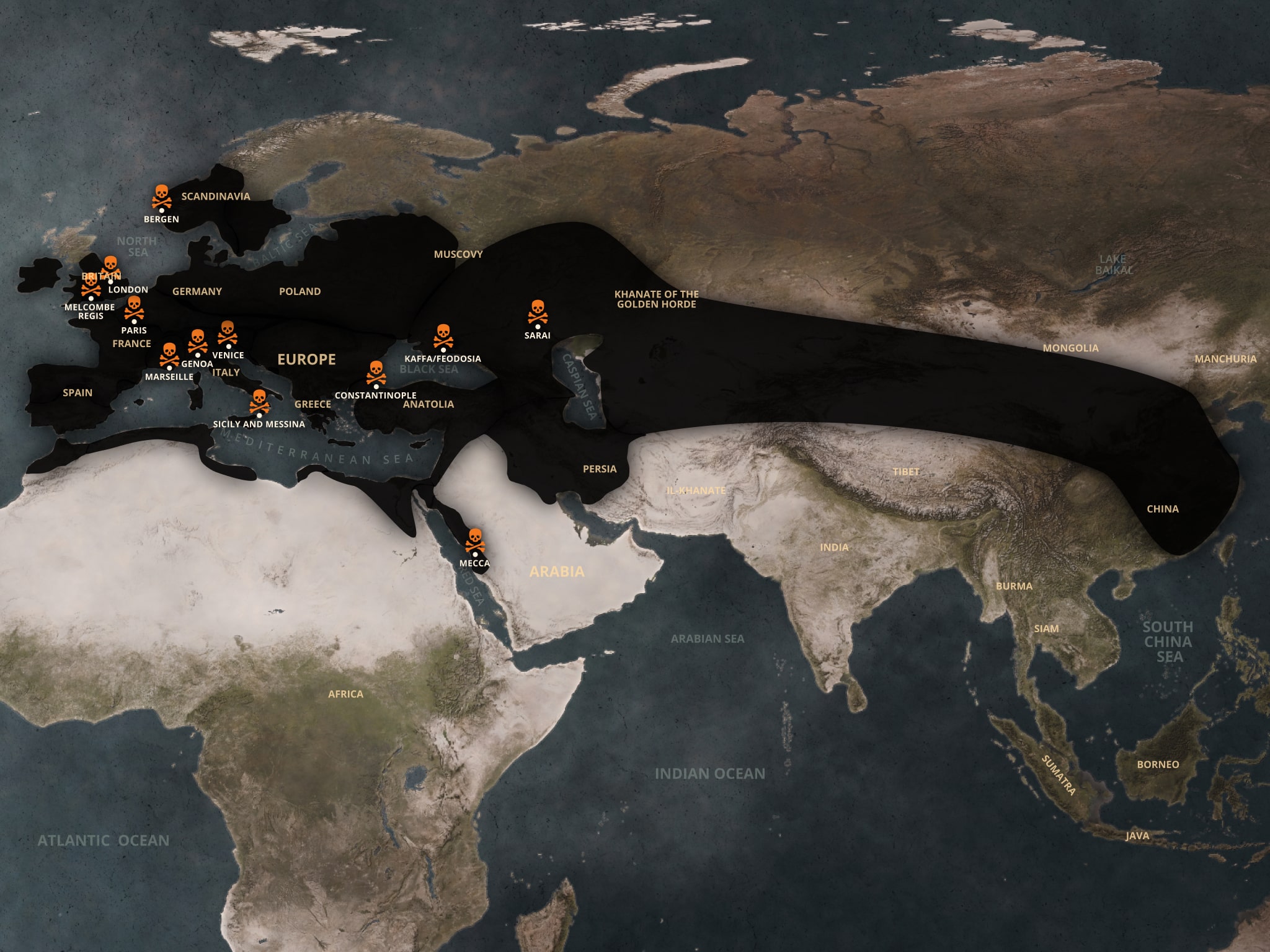
While the most devastating phase of the Black Death ended by 1353, Europe continued to experience recurrences of the plague well into the 18th century, each outbreak echoing the terror of the pandemic.


